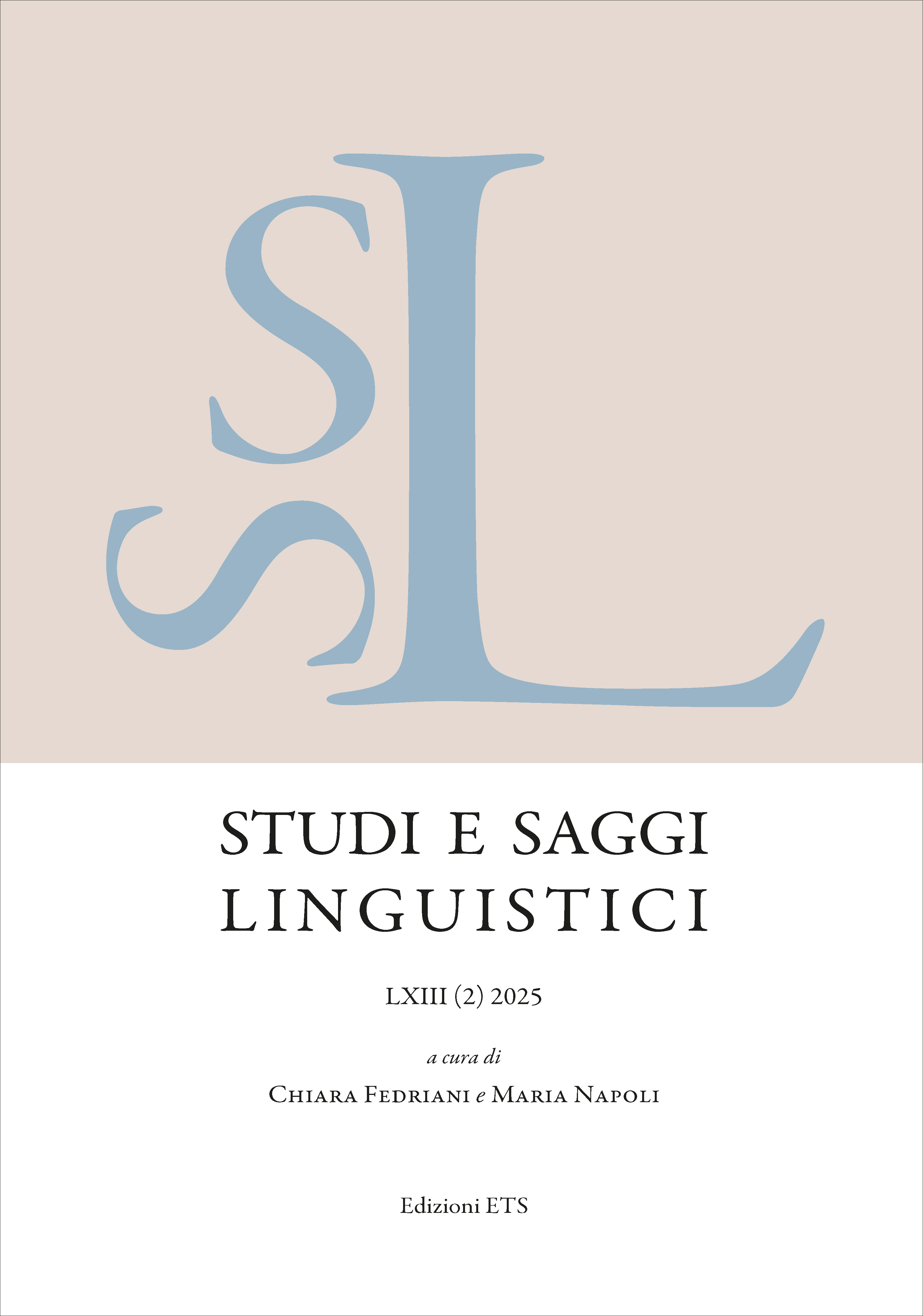How and when everything has to go together? A pragmatic history of the modalized passive with andare
Published 2025-10-10
Keywords
- passive, modality, grammaticalization, (de-)pragmaticalization
Abstract
As is well known, from the sixteenth century onwards the deontic passive with andare (henceforth PMA) occurs regularly in written texts as part of the history of the Italian language. It is less well known that the first attestations are strictly linked to specific text types: recipes, technical and normative documents, historical reports, plays and letters. In short, it appears in texts which are prescriptive and which use, completely or in part, the interactional strategies which are typically associated with speech and dialogue. In this paper we compare the two grammaticalization paths which involve andare + past participle, one typically past oriented and without modal force (quella casa è andata distrutta) and the other the present or future oriented PMA (quella casa va distrutta). We focus in particular on the interactional dimension involved in the genesis of the latter and the way it has come to constitute an intrinsic part of the modal subsystem of modern Italian.
